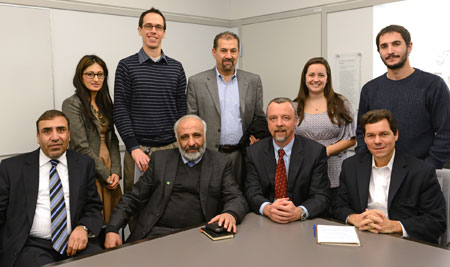Adviser to Afghan President Karzai, an Ex-USIP Fellow, Confers with Institute Staff
Minister Masoom Stanekzai, the head of the joint secretariat of Afghanistan’s High Peace Council, visited USIP’s Afghanistan team, as Presidents Barack Obama and Hamid Karzai met at the White House to discuss the future ties between the two nations.

January 11, 2013
Minister Masoom Stanekzai, the head of the joint secretariat of Afghanistan’s High Peace Council, visited the U.S. Institute of Peace today to confer with the Institute’s Afghanistan team, as Presidents Barack Obama and Hamid Karzai met at the White House to discuss the future ties between the two nations.
A former fellow at USIP, Stanekzai’s secretariat supports the council tasked with shepherding potential peace talks between the Afghan government and the Taliban. Stanekzai, who was wounded in a 2011 bomb attack that killed former Council Chairman Burhanuddin Rabbani, told a forum at USIP last year that peace in Afghanistan must be a longer-term process to be effective rather than being considered a single event. Stanekzai was a Jennings Randolph Afghanistan Fellow at USIP from May 2008 to Feb. 2009. Rabbani’s son, Salahuddin Rabbani, succeeded his father as council chairman.

Stanekzai with USIP's Afghanistan team.



